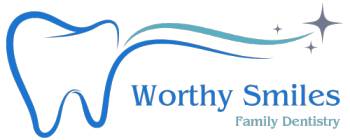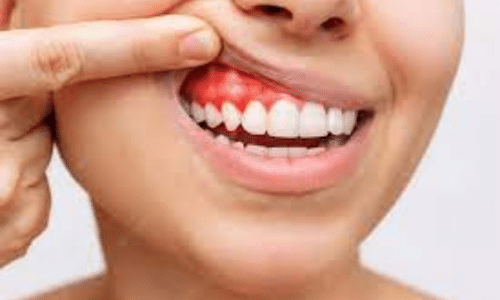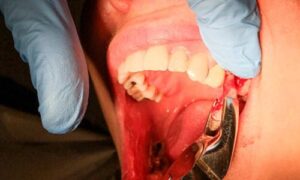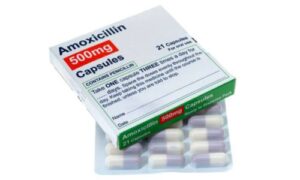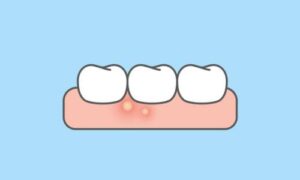Bleeding gums can be a distressing and uncomfortable experience. They might indicate underlying issues with your oral health. Understanding the reasons behind bleeding gums can empower you to better care of your dental hygiene. This article will delve into the various factors that can lead to bleeding gums and provide expert insights on maintaining healthier gums.
Introduction
Healthy gums are the foundation of strong teeth and overall oral well-being. They are vital in holding your teeth in place, protecting sensitive root areas, and preventing harmful bacteria from entering your bloodstream. When gums bleed, it’s a sign that something isn’t right. Let’s explore the potential causes of this issue and how you can address them.
What Causes Bleeding Gums?
Bleeding gums can result from various factors. Some of the common culprits include:
1. Poor Oral Hygiene
Neglecting proper oral care routines can lead to plaque buildup along the gumline. Plaque is a sticky film containing bacteria that irritate and inflame the gums, causing bleeding. To prevent this, establish a routine of brushing your teeth at least twice daily and flossing daily to remove plaque and food particles contributing to gum issues.
2. Gingivitis: The Early Stage of Gum Disease
Gingivitis is a mild gum disease often characterized by red, swollen, and bleeding gums. Poor oral hygiene habits primarily cause it. Consistent brushing, flossing, and professional dental cleanings are essential to reverse gingivitis. Regular dental check-ups can help catch and address gum issues early.
3. Hormonal Changes
Hormonal fluctuations during pregnancy, menstruation, or menopause can make gums more sensitive and prone to bleeding. This condition, known as pregnancy gingivitis, requires extra care and attention to oral hygiene. Consult your dentist for guidance on managing oral health during these hormonal changes.
4. Medications
Certain medications, like blood thinners and anticoagulants, can increase the risk of bleeding gums. If you’re on medication, it’s crucial to inform your dentist. They can guide your oral health and adjust your oral care routine accordingly.
5. Vitamin Deficiencies
A lack of essential vitamins, particularly vitamin C, can weaken gum tissues and lead to bleeding. Ensuring a balanced diet rich in vitamins and minerals contributes to gum health. Incorporate fruits, vegetables, lean proteins, and whole grains into your diet to support gum health.
6. Aggressive Brushing
Brushing your teeth too vigorously or using a toothbrush with stiff bristles can damage gum tissue, leading to bleeding. Opt for a toothbrush with soft bristles and use gentle circular motions while brushing. This will help clean your teeth effectively without causing harm to your gums.
7. Dental Appliances
Ill-fitting dentures or braces can cause friction and irritation, resulting in gum bleeding. Regular dental check-ups are essential to ensure that your dental appliances fit correctly and aren’t causing damage to your gums.
8. Tobacco Use
Smoking or using tobacco products can compromise gum health by reducing blood flow and increasing the risk of infections. This makes gums more prone to bleeding. Quitting tobacco can significantly improve your gum health and overall well-being.
9. Medical Conditions
Systemic conditions like diabetes, leukemia, and immune disorders can impact gum health and contribute to bleeding. Managing these conditions with proper medical care is crucial to maintain healthier gums. Regular communication with your healthcare provider and dentist is essential.
10. Stress
Chronic Stress weakens the immune system, making it harder for your body to fight off infections, including gum infections that lead to bleeding. Incorporating stress-reduction techniques like meditation, yoga, or deep breathing into your routine can help support your immune system and oral health.
Expert Insights
To maintain healthy gums and prevent bleeding, consider the following expert tips:
1. Brush and Floss Regularly
Why it’s essential: Brushing your teeth at least twice daily and flossing daily are fundamental to maintaining healthy gums. This routine helps remove plaque and food particles contributing to gum issues.
Brushing technique: Use a soft-bristle toothbrush and fluoride toothpaste. Brush gently in a circular motion, ensuring you cover all tooth surfaces. Don’t forget to brush your tongue and the roof of your mouth.
Flossing technique: Use dental floss or interdental brushes to clean between teeth and along the gumline. Be gentle to avoid damaging your gums. If you’re new to flossing, consult your dentist for guidance.
2. Use a Soft-Bristle Toothbrush
Why it’s essential: Opting for a toothbrush with soft bristles is crucial to avoid damaging your gums while brushing. Stiff bristles can cause gum irritation and recession over time.
Choosing the right toothbrush: Look for a toothbrush labeled as “soft” or “extra-soft.” These brushes effectively clean teeth without being harsh on your gums.
Proper brushing technique: Hold the toothbrush at a 45-degree angle to your gums and use gentle, circular motions. Avoid scrubbing vigorously, as it can lead to gum abrasion.
3. Maintain a Balanced Diet
Why it’s essential: Consuming a diet rich in fruits, vegetables, lean proteins, and whole grains provides vital nutrients for gum health.
Nutrients for gum health: Vitamin C is essential as it helps repair and maintain connective tissues. Foods like citrus fruits, strawberries, and broccoli are rich in vitamin C. Calcium and vitamin D are also essential for strong teeth and gums, so include dairy products, leafy greens, and fortified foods.
Avoid sugary snacks: Limit sugary and acidic foods and beverages, as they can contribute to tooth decay and gum issues.
4. Schedule Regular Dental Check-ups
Why it’s crucial: Regular dental check-ups are essential to catch and address gum issues early. Your dentist can detect problems that you might overlook on your own.
Frequency: Visit your dentist for check-ups and cleanings at least every six months or as your dental professional recommends.
Professional cleanings: Dental hygienists can remove plaque and tartar buildup that regular brushing and flossing may miss, reducing the risk of gum disease.
5. Quit Tobacco Use
Why it’s essential: Smoking or using tobacco products significantly compromises gum health by reducing blood flow and increasing the risk of infections, making gums more prone to bleeding.
Benefits of quitting: Quitting tobacco improves gum health and reduces the risk of oral cancer, stains on teeth, and bad breath. Seek support and resources to stop if needed.
Consult your dentist: Inform your dentist about your tobacco use, as they can provide additional guidance and support tailored to your situation.
6. Manage Stress
Why it’s essential: Chronic Stress weakens the immune system, making you more susceptible to gum infections and other oral health problems.
Stress-reduction techniques: Practice meditation, yoga, deep breathing exercises, or mindfulness. These activities can help support your immune system and promote overall oral health.
Work-life balance: Strive to maintain a healthy work-life balance and find time for relaxing and rejuvenating activities. A stress-free mind contributes to a healthier mouth.
Conclusion
Maintaining healthy gums is a crucial aspect of overall oral health. By understanding the various factors contributing to bleeding gums and following expert tips, you can take proactive steps to prevent gum issues. Remember, consistent oral care and regular dental visits are vital to keeping your gums in shape.
More blogs to read:
